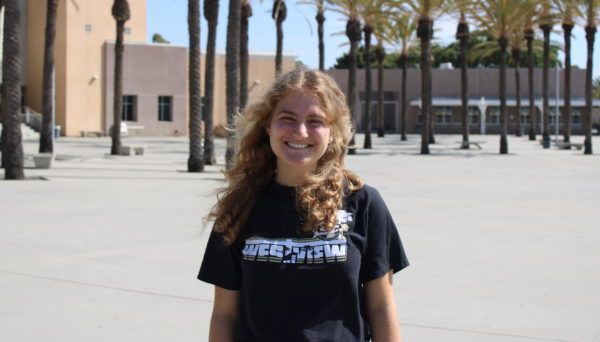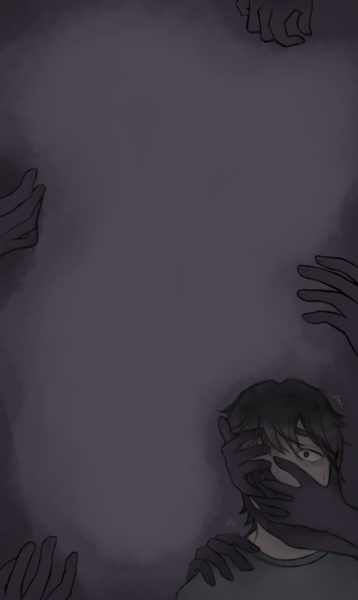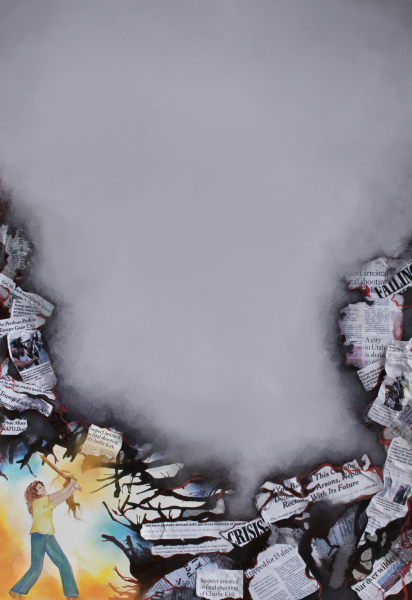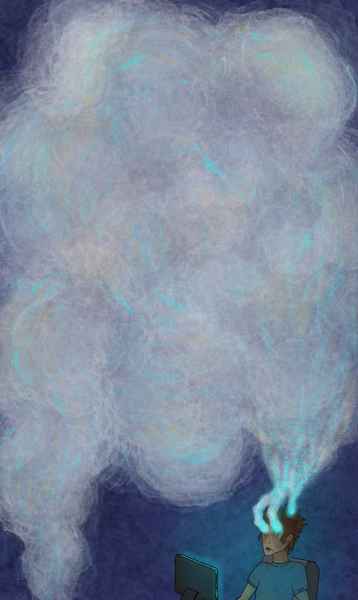Seeking solace
In difficult times, students find comfort in religion.
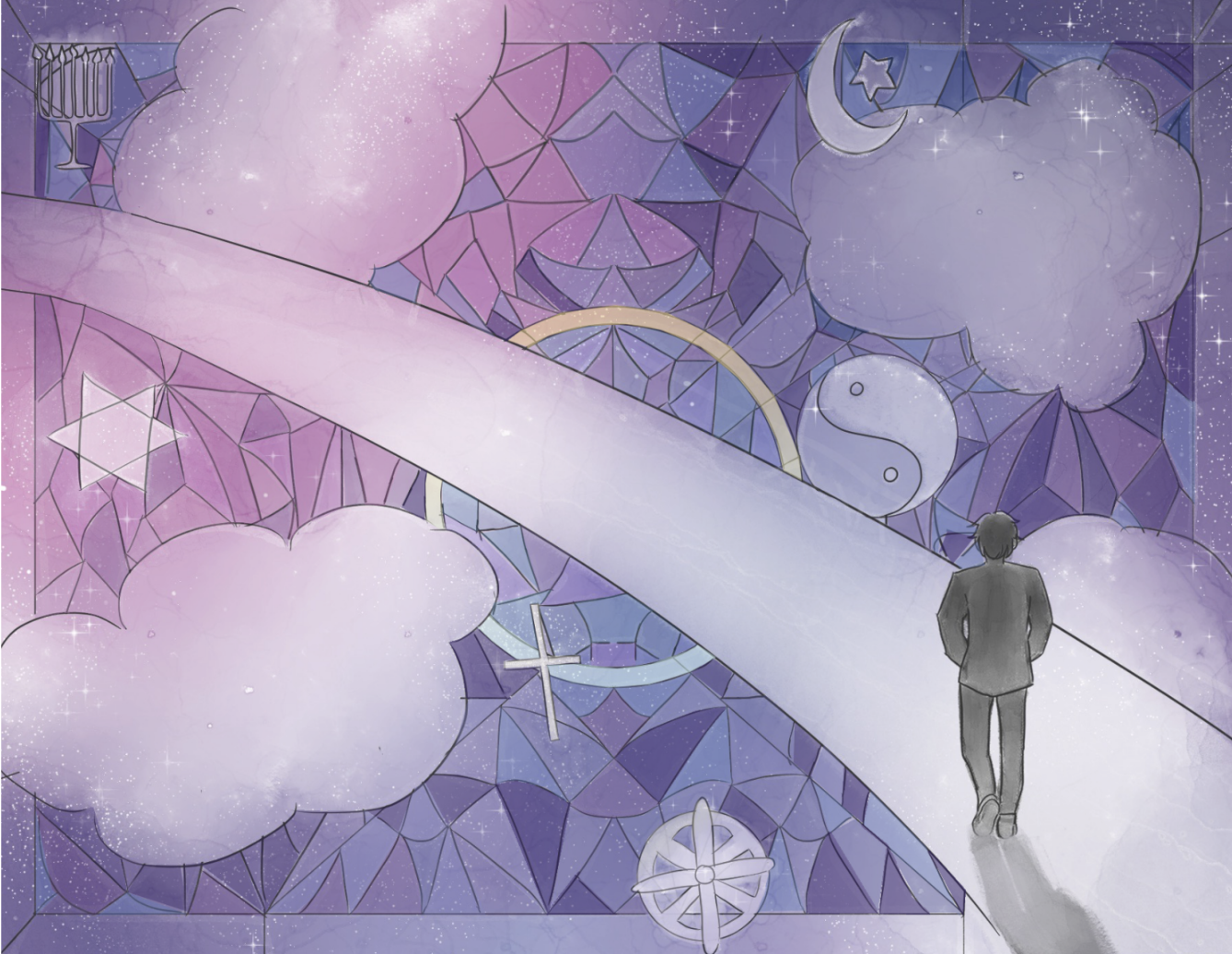
Using religion to overcome challenges
During quarantine Sutchin Somanathan (11) experienced a hyperfixation associated with obsessive-compulsive disorder. When the space bar on his keyboard made an unusual noise, he’d spend hours agonizing over it.
“All day during Zoom classes, I would take it apart and put it back together, maybe 20 times every single day, and it wouldn’t work,” Somanathan said. “I couldn’t accept that it wouldn’t be perfect. And it was so hard to deal with the constant stress [of OCD].”
To help himself cope, Somanathan looked into meditation, specifically the kind that follows a Buddhist way of thinking.
“I really started to look into [Buddhism] in middle school,” Somanathan said. “Eventually, I came across some YouTube videos regarding it, and I thought it was really useful. I tried meditation, and I tried studying [the religion], and it really helped me. Now, I’d say I do follow [the] religion, but back then it was a way for me to deal with my own issues.”
Somanathan said that, beyond meditation, his practice of Buddhism involves living in the present and having awareness of when negative emotions arise.
“It’s not just about [meditating], it’s also the way you cultivate your mind, the way you deal with your thoughts,” Somanathan said. “It’s about being present, it’s a lot of different things, but all those sort of came together like a puzzle and helped me fix [my mindset].”
Somanathan said meditation has helped him cope with symptoms associated with OCD.
“[Meditation] has helped in a lot of different ways,” Somanathan said. “I remember I found this monk online and he also had an anxiety disorder and OCD and he talked about the ways that he dealt with it. That’s why I really discovered meditation and I realized it really helped.”
Meditation helped Somanathan focus on the present moment rather than individual fixations.
“During quarantine, I’d be thinking about that same thing the whole day,” Somanathan said. “[Meditation] really helped me be able to calm my mind and just be able to focus on the present, which was so difficult. That’s the main thing with OCD—you become hyper-fixated upon one thing.”
Although mental health services are important resources, Somanathan said that Buddhism has introduced a form of self-therapy he hasn’t found anywhere else.
“I tried counseling and therapy,” Somanathan said. “After [a while], I realized the best thing I can do is just help myself, and [Buddhism] works. That’s the only thing that ever worked for me.”
Gabriel Lowe is a licensed psychologist in San Diego who has experience providing behavioral health services in pediatric medicine. His research projects have explored the mental health of Christian theology students and he has worked with the organization SOULeader to train pastors and Christian denominational leaders across the country to address the mental health needs of their congregations.
Lowe said that meditation can improve the way individuals with OCD cope with symptoms, which include anxiety that is relieved with compulsive, cyclical behavior.
“If you can insert a meditative practice or mindfulness in the middle, you can disrupt that cycle [of overwhelming thoughts],” Lowe said. “You’re providing the body and the brain with an alternative way of coping. Another way it can be really helpful is that meditation and mindfulness allow you to be very in touch with your body, having something to break your mindset out of that stuck place.”
He also said that Buddhism gives him a focused purpose to structure life around.
“I think about it every day and it changes the way I interact with people,” Somanathan said. “It just really changes the way I view everything and it makes my life more streamlined. There’s less bumps when I have a path and a way to live my life within those guidelines, [such as meditation], that are given by Buddhism.”
Stress is also something that Juliet Ochola (12) has alleviated by practicing Christianity. Last year, a close family member of hers fell ill through developing a thyroid nodule..
Although not all cases result in symptoms, some thyroid nodules can be cancerous.
“[My relative] had fluctuating feelings throughout the day,” Ochola said. “We’d want to do something fun, but at that time [they] wouldn’t be feeling very well, or [they’d] not be very happy about something. We were very stressed about it, and we didn’t know if it was cancerous or benign.”
Later, Ochola learned that her relative had thyroid cancer.
“That was a moment where my faith really got tested, because I was like ‘why is this actually happening to [them]?’” Ochola said.
To deal with the stress of her relative’s illness, Ochola sought religious support.
“I went to church and I talked to some of my friends too about [the medical diagnosis], and we all prayed about it,” she said. “We all got together and prayed around [my relative] too, and [they] went through the operations and [the doctors] were able to successfully get [the thyroid nodule] out even though they said they wouldn’t be able to. [They] had a 27% chance of it actually succeeding, and [it was successful].”
Practicing Christianity, Ochola said, helps her manage stress and pressure in everyday situations, such as at school, too.
“I’m not constantly stressed about things or constantly worrying, mainly because the Bible tells us not to worry,” Ochola said. “When you plan and then give [your problems] to God, he’ll help you out. I usually just give [things] my best, and then give it to him, and hopefully it works out.”
Ochola said that sometimes praying is all she needs to find calm during a tumultuous time. Her religion helps her make sense of what is important to her.
“[There’s] a peace during conflict that I always end up getting after I pray,” she said. “Christianity is the forefront of my life. Everything else just stems through that.”
Dealing with difficult experiences has also been easier for Shira Ehrlich (11) due to her connection to Judaism.
“There was one point when, unfortunately, my grandmother passed away, and that was really hard for me to accept because I was like ‘why is this happening?’” Ehrlich said. “She was such a great person.”
Ehrlich said she looked into a Jewish belief that says when someone passes away, their nachama (soul) is taken care of by God. This helped her find comfort in the belief that her grandmother’s soul is safe.
Finding community through faith
Ochola’s favorite Holy Bible verse is “a joyful heart makes a cheerful face,” from Proverbs 15:13.
“I think about how I’d like others to view me, and I think my [Christian] faith really impacts my character,” Ochola said.
Some students, such as Ehrlich, find a social community through their religion.
Ehrlich is part of a youth group called Youth Action Movement, an organization designed to teach Jewish teens in San Diego to embrace their heritage and engage in humanitarian and educational activities.
“Every month, we have something called Community Shabbats,” Ehrlich said. “A bunch of Jewish teens [from] all over San Diego gather at the rabbi’s house to have dinner together. It’s really a place where you can just appreciate being with people who have the same kind of morals and beliefs that you do.”
Participants also put away their cellphones in light of the weekly Sabbath on Saturdays, which Ehrlich said has helped her make more of a real connection with people face-to-face.
“Without that aspect of religion as something that I have in common with the people around me, it would have been much more difficult to create those long-lasting relationships,” Ehrlich said.
Ehrlich said that joining her youth group also helped her find a sense of community that she missed after transferring schools.
“I used to go to a Jewish private school, and when I switched over to public school, I felt super distant from my Jewish identity and friends,” Ehrlich said. “But when I first came to a youth group event, I reconnected with my old school friends and it helped me gain back that piece of my life that I missed.”
When Ehrlich’s grandmother passed away, she also benefited from social connections within her Jewish community.
“I was talking to a rabbi’s wife about it,” Ehrlich said. “Through our connection of being Jewish, she really helped me get through it and realize that everything happens for a reason, and there are ways to get past it through things that are important to you like being Jewish.”
Ehrlich said that she finds a sense of belonging within her Jewish community.
“When I go to temple or when I go to synagogue, there are just a lot of different [kinds] of people, different levels of how observant people are, and it makes me feel welcomed and [helps me understand] how broad of a spectrum religion is,” Ehrlich said. “It’s kind of a place where I feel like I won’t get judged. I feel like within my Jewish community, I belong there.”
Through religion and spirituality, social communities can be created, too.
Somanathan established the Buddhism Club this year to share what he has learned with other students.
“Now that I started the club, I give this information to other people knowing that it could help them,” he said.
Somanathan also said that before practicing the mindfulness associated with Buddhism, he was less aware of the impressions he had on others.
“I used to say things to people without even thinking about the impact it had on them,” Somanathan said. “Buddhism made me realize the importance of kindness and how huge of an impact it has.”


